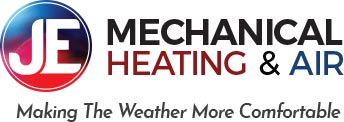Choosing the Best HVAC Filter with Help from Our Professionals
Selecting the right HVAC filter is essential for maintaining the efficiency and air quality of your heating and cooling system. The right filter not only protects your HVAC system from damage but also ensures that the air circulating in your home or business is clean and healthy. With many types of filters available, understanding the differences and knowing which one fits your needs can be challenging.
Understanding Different Types of HVAC Filters
Fiberglass Filters
Fiberglass filters are the most basic type of HVAC filter. They are usually made of spun glass and are disposable. These filters are cost-effective and easy to replace, but they do not provide high levels of filtration. Fiberglass filters trap dust and debris, protecting your HVAC system, but they are not very effective at removing smaller particles. This type of filter is best suited for systems where basic filtration is sufficient and budget is a concern.
Pleated Filters
Pleated filters offer better filtration than fiberglass filters. Made from polyester or cotton paper, these filters have folds, or pleats, which increase the surface area for capturing particles. Pleated filters can trap dust, pollen, and even some mold spores, making them a good choice for households with allergy sufferers. They are more efficient and last longer than fiberglass filters, but they also come at a higher cost.
Washable Filters
Washable filters, also known as reusable filters, are designed to be cleaned and reused multiple times. Made from durable materials like aluminum or plastic, these filters can be washed and reinstalled. Although washable filters have a higher upfront cost, they can be more economical in the long run. They are environmentally friendly since they reduce waste. However, it is important to clean these filters regularly to ensure they do not become clogged and hinder airflow.
High-Efficiency Particulate Air (HEPA) Filters
HEPA filters are the most efficient type of HVAC filter available. They can trap up to 99.97% of airborne particles, including dust, pollen, mold spores, and even bacteria and viruses. HEPA filters are often used in environments where air quality is critical, such as hospitals and laboratories. While they offer superior filtration, HEPA filters can restrict airflow and may not be compatible with all HVAC systems. It is crucial to check with our professionals to see if your system can accommodate a HEPA filter.
Factors to Consider When Choosing an HVAC Filter
MERV Ratings and Their Importance
The Minimum Efficiency Reporting Value (MERV) rating indicates the effectiveness of an HVAC filter. It ranges from 1 to 16, with higher numbers representing better filtration capabilities. For residential use, a filter with a MERV rating between 8 and 13 is typically sufficient. Higher MERV ratings indicate better filtration but may also restrict airflow. Choosing the right MERV rating depends on your specific needs and the capabilities of your HVAC system.
Compatibility with Your HVAC System
Not all HVAC filters are compatible with every system. Some filters are too thick and can reduce airflow, causing your system to work harder than necessary. Others might not fit properly, leading to unfiltered air bypassing the filter. It is essential to choose a filter that is specifically designed for your HVAC system.
Cost and Maintenance Requirements
The cost of an HVAC filter can vary widely depending on its type and efficiency. While basic fiberglass filters are inexpensive, higher-quality filters like pleated or HEPA filters cost more. In addition to the purchase price, consider the maintenance requirements. Some filters need frequent replacement, while washable filters require regular cleaning. Weighing these factors can help you choose a filter that fits your budget and maintenance preferences.
Common HVAC Filter Issues and Solutions
Clogged Filters
One frequent issue with HVAC filters is clogging. When a filter becomes clogged with dust and debris, it restricts airflow, making your system work harder. This can lead to higher energy costs and potential damage to your HVAC unit. Regular inspections and replacements are key to preventing clogs. Our professionals recommend checking your filters monthly and replacing them as necessary. Using higher-quality filters can also help reduce the frequency of clogs.
Incorrect Filter Size
Using an incorrect filter size can cause multiple problems, from reduced filtration efficiency to system inefficiencies. A filter that is too small may allow unfiltered air to bypass the filter, while an oversized filter may not fit properly, leaving gaps. Both situations can lead to contaminants entering your system and reduce your HVAC’s performance. Always make sure to select the correct size for your specific system.
Low-Quality Filter Materials
Filters made from low-quality materials fail to provide adequate filtration and may deteriorate quickly. Such filters are often less effective at trapping smaller particles and may lead to more frequent replacements. Investing in higher-quality filters ensures better air quality and extends the life of your HVAC system. Our professionals can recommend filters with high-quality materials that offer better performance and durability.
Conclusion
Choosing the best HVAC filter is a crucial step in ensuring the efficiency and longevity of your heating and cooling system. Different filters offer varying levels of filtration, and understanding the options available helps in making an informed decision. Factors like MERV ratings, system compatibility, and maintenance costs are essential considerations when selecting a filter.
By addressing common issues such as clogged filters and incorrect sizes, you can prevent many problems that can affect your HVAC system’s performance. Low-quality filters may seem cost-effective initially but can lead to more significant issues over time. Investing in a high-quality filter and professional services ensures the best results.
For expert assistance in selecting and maintaining the best HVAC filter in Cumming, contact JE Mechanical HVAC, Corp. today. Let our team help you ensure optimal air quality and system efficiency!




